Kay Ivey’s office evaluating Trump unemployment plan
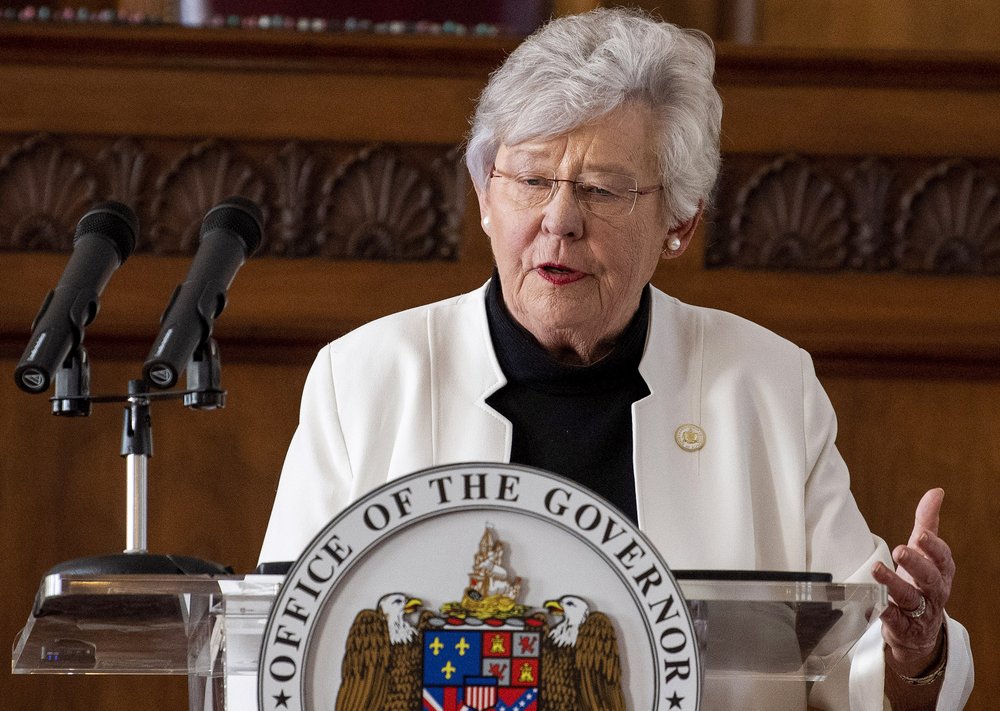
There are many unknowns about the Trump’s plan announced over the weekend, including if he has the power to extend benefits by executive order.
Will toll opposition continue to make a difference in mayoral elections Fairhope and beyond?
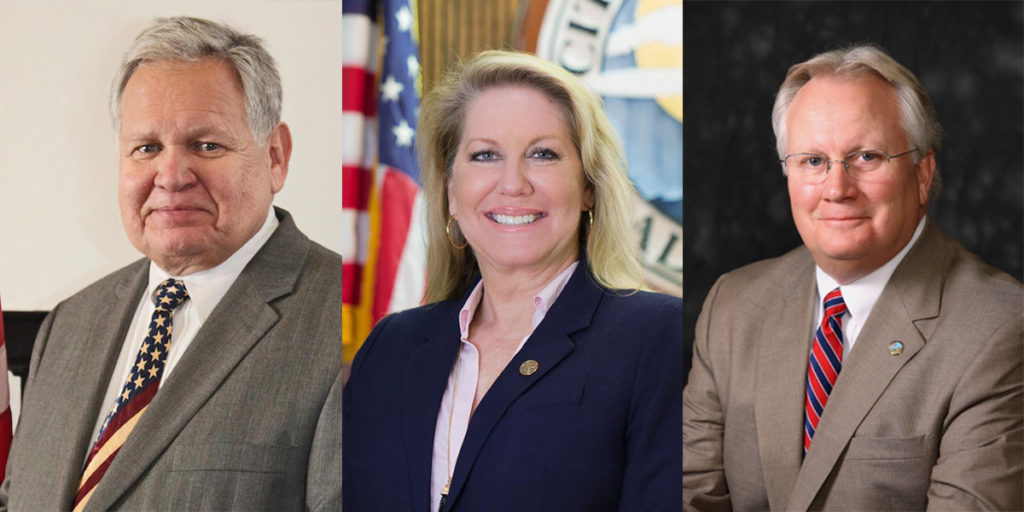
In the summer of 2019, the opposition to the toll bridge on I-10 in Alabama reached a fever pitch. The project included a new 2.5-mile-long, six-lane cable-stay bridge and involved a complete replacement of the existing I-10 Bayway. The project would cost a considerable amount of money, with the price tag rising exponentially as the plans were finalized. John Cooper, the director of the Alabama Department of Transportation and Governor Kay Ivey insisted the only way to fund the project would be to toll drivers. While they expected opposition, those in Montgomery thought that they’d steamroll the opposition. State Auditor Jim Zeigler explained what opponents were up against, telling AL.Com on the night project died, “When we first started, several people told me that ‘you’re wasting your time. It’s a done deal, and there isn’t a thing you can do. It’s a done deal. But now, it’s a dead deal.” It’s easy to look back at the fight, especially the end of the battle when politicians started tripping over themselves to rush to the side of the overwhelming majority of residents opposed to the plan and see its death coming by 1,000 cuts, but it’s essential when we look to the future that we look at the history and what happened. There’s no better place to look than Zeigler’s book, Blocking the 1-10 Toll Scheme: A Successful Citizen Movement. In the book, he describes in detail the timeline from start to finish of the grassroots efforts to stop the bridge. In an interview with Alabama Today, he noted, “The book doesn’t favor any one person or seek to endorse anyone. It simply gives a timeline of what progressed.” A free copy of the book is available at: https://tinyurl.com/BlockingTheToll In it, he describes the Fairhope City meeting, which was planned to be at the Fairhope Civic Center, in the large city council meeting room. There were 33 people who opposed the toll scheduled to testify. Only two people were slated to testify in favor of the toll. Neither of those people ended up speaking. The meeting lasted four hours. In the end, the ESMPO members voted 8 to 1 in favor of the motion to remove the toll project from the TIP. Zeigler stated in his book that the community effort to kill the toll was partly due to the skilled organization of several people, including Karin Wilson. Fairhope’s mayor, Karin Wilson, played a vital role in stopping the toll plan. Mayor Wilson was the first member of the Eastern Shore Metropolitan Planning Organization to oppose the toll plan. She made the argument that the state should have invested the BP settlement money to fund the project instead of using the money as part of their operating budget. Wilson took to her Facebook page to express her opposition. “I’m 100% against a toll to build this bridge whatever the fee.” Wilson continued, “The critical need for a new bridge has been discussed for over a decade. To react as though building it now is an overnight emergency is absurd. It’s the perfect example of government getting away with zero accountability. A household or business cannot operate with the idea that if we cannot balance our budget we can force someone else to pay for it. We must budget within our means or fail and suffer the consequences. It’s a pretty good incentive having to be accountable.”Zeigler himself rallied opponents on his own Facebook page, gathering 55,000 people to fight the project. Other officials on the ESMPO who voted against the toll were Daphne mayor Dane Haygood, Spanish Fort mayor Mike McMillon, Loxley mayor Richard Teal, Fairhope city council president Jack Burrell, Daphne city councilman Ron Scott, Baldwin county commissioner Billie Jo Underwood, and Baldwin county commissioner Joe Davis.Zeigler’s citizen group named Block the Tolls. Support Accountability is still active with 52,000 members. Will the toll issue and toll fighters make a difference in the upcoming municipal elections on August 25? Because the toll proposal could resurface at any time, it is likely that citizens will remain engaged. Since the toll plan was blocked on August 28 of last year, the group succeeded in defeating Amendment One on the March 3rd ballot. It would have taken away the right to vote for or against members of the State School Board and make them all appointed by the governor. The proposal was demolished, 75% no to 25% yes. It was another victory for the ‘No Tolls’ group. Mobile County Commissioner Jerry Carl, who drafted the resolution to remove the toll from the Transportation Improvement Plan won the Republican nomination for Congress on July 14 by a vote of 52% to 48%. Will the 52,000 toll-fighting activists make a difference in the August 25 municipal elections? Will they remember those officials who helped block the toll? Over 2,000 of the toll fighters live in the City of Fairhope, where there is a contested Mayor’s race. Fairhope is considered a bellwether of the continuing influence of Zeigler’s citizen group.
Dollar General opens cold storage facility in Montgomery, creating 65 jobs

The facility seeks to support approximately 1,500 stores through the company’s Fresh initiative, a strategic multiphase shift to self-distribution of frozen and refrigerated goods.
COVID-19 cases decline, but state braces for school impact

The reported number of daily COVID-19 cases this week fell to under 1,000. The state was reporting as many as 2,000 new cases per day last week.
Powering up for EVs at Alabama’s port and the rest of the state
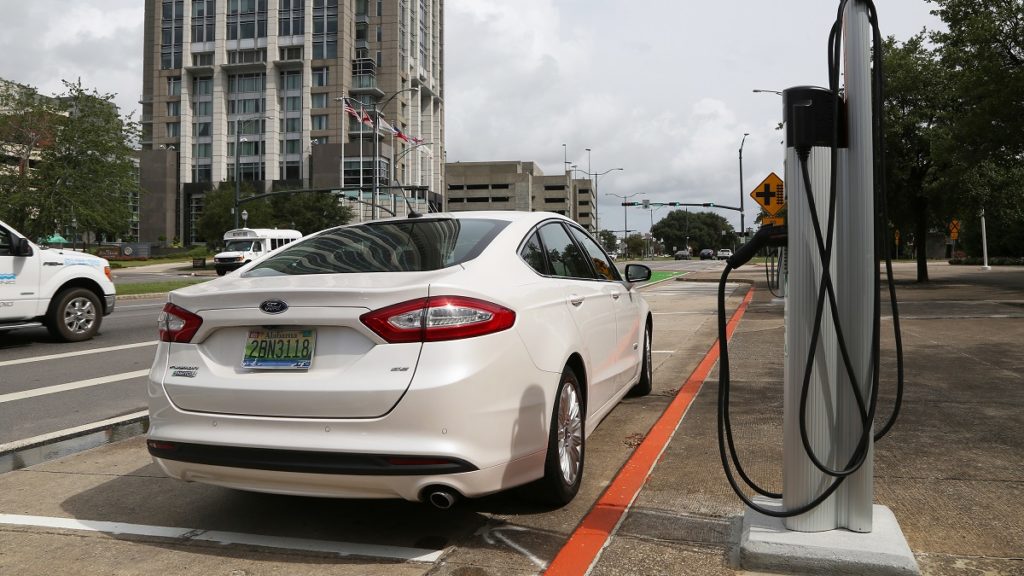
Kay Ivey announced this week that multiple agencies will work to expand electric vehicle charging stations throughout the state.
Kay Ivey extends safer at home order
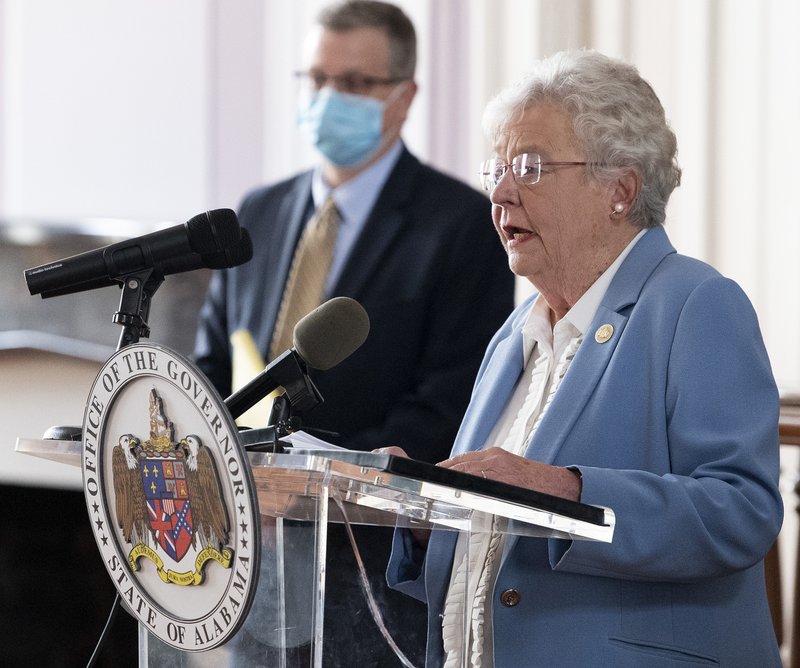
Ivey’s updated order comes as Alabama’s total number of coronavirus cases reaches 80,000.
State seeks to dismiss suit challenging Alabama mask order

Lawyers for Alabama Gov. Kay Ivey on Monday asked a judge to dismiss a lawsuit challenging the legality of a statewide order to wear face coverings in public places to combat the spread of the coronavirus. Real estate agent Debbie Mathis and retired sheriff’s Deputies Larry Lewis and Barry Munza, all of Jackson County, filed the lawsuit last week in Montgomery against Ivey, State Health Officer Scott Harris, and the State Board of Health. The lawsuit contends the mask order was illegally adopted and that plaintiffs face deprivation of liberty anytime they interact with others. “There is no statutory authority that can be construed to empower the governor to mandate the wearing of a mask under any circumstances,” a lawyer for the plaintiffs wrote in court filings. Ivey, on July 15, announced a requirement for face coverings to be worn by anyone older than six years old, who’s in public and within 6 feet (2 meters) of someone who’s not a relative. The rule, which makes exceptions for people who have certain medical conditions, are exercising, or people who are performing certain types of jobs. The governor’s office asked the judge to dismiss the case. “Governor Ivey has statutory authority under the provisions of the (Alabama Emergency Management Act of 1955) to require the public to wear masks under certain circumstances to prevent the spread of COVID-19,” lawyers for the state wrote. The rule is set to expire Friday, and Ivey and Harris are expected to announce this week whether it and other health orders will be extended. Republished with the permission of the Associated Press.
Body of civil rights icon John Lewis crosses Selma bridge

The late U.S. Rep. John Lewis crossed the Edmund Pettus Bridge in Selma, Alabama, for the final time Sunday as remembrances continue for the civil rights icon. The bridge became a landmark in the fight for racial justice when Lewis and other civil rights marchers were beaten there 55 years ago on “Bloody Sunday,” a key event that helped galvanize support for the passage of the Voting Rights Act. Lewis returned to Selma each March in commemoration. Sunday found him crossing alone — instead of arm-in-arm with civil rights and political leaders — after his coffin was loaded atop a horse-drawn wagon that retraced the route through Selma from Brown Chapel African Methodist Episcopal Church, where the 1965 march began. As the black wagon pulled by a team of dark-colored horses approached the bridge, members of the crowd shouted “Thank you, John Lewis!” and “Good trouble!” the phrase Lewis used to describe his tangles with white authorities during the civil rights movement. Some crowd members sang the gospel song “Woke Up This Morning With My Mind Stayed on Jesus.” Later, some onlookers sang the civil rights anthem “We Shall Overcome” and other gospel tunes. Lewis died July 17 at 80, months after he was diagnosed with advanced pancreatic cancer. Lewis served in the U.S. House of Representatives for Georgia’s 5th congressional district from 1987 until his death. The wagon rolled over a carpet of rose petals, pausing atop the bridge over the Alabama River in the summer heat so family members could walk behind it. On the south side of the bridge, where Lewis was beaten by Alabama state troopers in 1965, family members placed red roses that the carriage rolled over, marking the spot where Lewis spilled his blood and suffered a head injury. As a military honor guard lifted Lewis’ casket from the horse-drawn wagon into an automobile hearse, Alabama state troopers, including some African American ones, saluted Lewis. Franz and Ellen Hill drove more that four hours from Monroe, Louisiana, to watch the procession. Franz Hill, 60, said he remembers, as an African American child, watching news footage of Lewis and other civil rights marchers being beaten by law enforcement officers. “I had to come back and see John Lewis cross this bridge for the last time,” said Hill. “It’s funny to see the state troopers waiting on him for a whole different reason, to honor and respect him rather than beat the crap out of him.” There has been a movement to rename the Edmund Pettus Bridge after Lewis, but the idea has also faced opposition from those who note that Lewis wasn’t the only activist beaten on the bridge that day. Lewis’ body was then taken to the Alabama Capitol in the afternoon to lie in repose, retracing the route marchers took in the days after Bloody Sunday to demand justice from Alabama Gov. George Wallace. Bertha Surles and Edna Goldsmith stood along the highway between Selma and Montgomery to pay their final respects. Both carried signs, reading “Thank you.” “He fought for equal rights up unto his death,” said Surles, 70. She was in high school on Bloody Sunday and remembered watching the news footage of Lewis being beaten with horror. “They didn’t give up and something good came from it. Still need some improvement, but something good came from it.” Lewis left his family’s farm in Pike County, Alabama, in the 1950s to begin the fight against segregation and racial oppression. He received a hero’s welcome on his final stop in his home state. After tracing the route of the completed Selma to Montgomery march, an honor guard carried Lewis’ flag-draped casket into the Alabama Capitol, which had served as the first capitol of the Confederacy. Peggy Wallace Kennedy, the daughter of former segregationist governor Wallace, was among those in the Capitol for the receiving ceremony, along with most of Alabama’s congressional delegation. Alabama Gov. Kay Ivey placed a wreath of flowers shaped like the Alabama flag by the casket. U.S. Rep. Terri Sewell placed a wreath shaped like the American flag. His family members, many wearing shirts with the phrase “Good Trouble,” were led first into the Capitol before the public viewing later in the afternoon. A line of people, some carrying umbrellas for shade, waited under the brutal midday Alabama sun to go inside and pay their respects. After the viewing, his casket was carried out as the song “Amazing Grace” was sung. Bernice King, the daughter of Martin Luther King Jr., spoke at a vigil for Lewis across the street from the Capitol, just a block away from the church her father led during the civil rights movement. Standing in front of large letters, spelling out the word “VOTE,” she recalled the man her father called “the boy from Troy” and her family called Uncle John. “The most astounding thing about Congressman Lewis being left for dead on that bridge (in 1965) is how he got up both physically and spiritually. When he recovered, he recovered without a trace of bitterness or hostility or without losing hope in our Democracy,” Bernice King said. She called for today’s young activists to take inspiration from Lewis’ non-violent leadership and for Congress to honor Lewis’ life legacy by restoring and expanding the Voting Rights Act of 1965. “This would be a fitting tribute and a way to honor this non-violent warrior who said the vote is the most powerful tool that we have,” she said. A series of events began Saturday in Lewis’ hometown of Troy, Alabama, to pay tribute the late congressman and his legacy. He will lie in state at the U.S. Capitol next week before his private funeral Thursday at Atlanta’s historic Ebenezer Baptist Church, which the Rev. Martin Luther King Jr. once led. ___ This story corrects the spelling of the first name of Franz Hill. Republished with the permission of the Associated Press.
John Merrill extends absentee voting for House District 33 special election
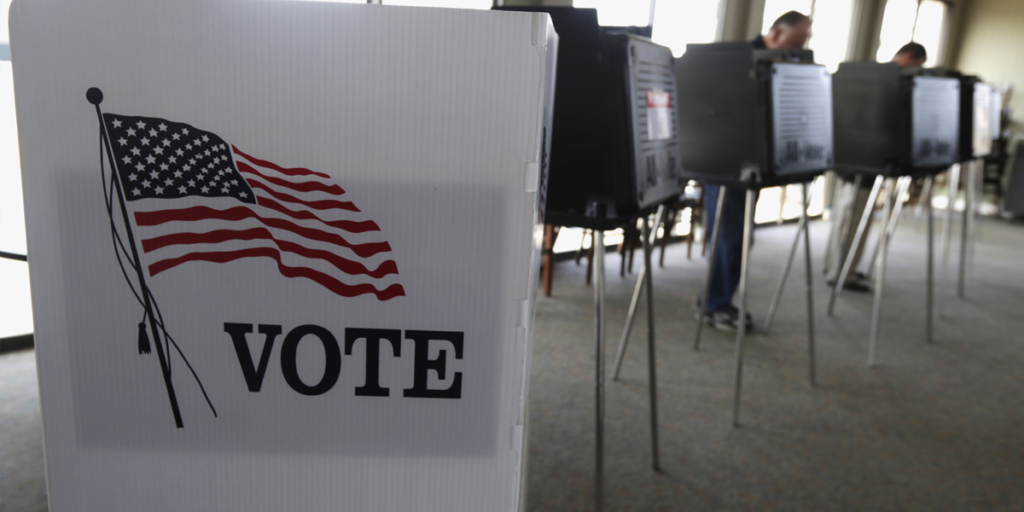
Voters in House District 33, which includes parts of Clay, Coosa, and Talladega counties, concerned about the COVID-19 pandemic, will be able to vote absentee in the October 6 special election, Alabama Secretary of State John Merrill announced Friday. Merrill’s announcement follows Governor Kay Ivey’s Tuesday announcement where she set the House District 33 special primary election for Tuesday, October 6, 2020, in order to fill the vacant seat left by the unexpected passing of Representative Ron Johnson. Any qualified voter who determines it is impossible or unreasonable to vote at their polling place shall be eligible to check the box on the absentee ballot application that is most applicable to that individual. State law allows the Secretary of State to issue absentee voting guidance during declared states of emergency, allowing Secretary Merrill to encourage voters to check the box which reads as follows (in the case none of the boxes are appropriate): “I have a physical illness or infirmity which prevents my attendance at the polls. [ID REQUIRED]” If necessary, a special primary runoff election will be held on Tuesday, November 3, 2020. The special general election is set for Tuesday, January 19, 2021. Deadlines For the House District 33 special primary election, the deadline to register to vote is Monday, September 21, the deadline to apply for an absentee ballot is Thursday, October 1, the last day to return an absentee ballot by hand is Monday, October 5, and the last day to postmark an absentee ballot is Monday, October 5. Voters who are eligible to vote pursuant to the Uniformed and Overseas Absentee Voting Act will have until Tuesday, October 6 to postmark an absentee ballot.
Alabama extends online driver license renewal due to COVID-19 pandemic

The State of Alabama is extending online driver license renewals due to the COVID-19 pandemic. Governor Kay Ivey made the announcement Tuesday, allowing Alabama driver license holders to be allowed to renew online a second time during a 12-year period. Until now, driver license holders were limited to one online renewal every eight years. As part of the Alabama Law Enforcement Agency’s (ALEA) commitment to public safety, and in response to the ongoing COVID-19 pandemic, the agency’s Driver License Division has temporarily expanded its online renewal process at www.alea.gov. Customers who renewed their Alabama driver licenses using ALEA’s online system prior to the pandemic may now renew a second time during the next four years. “COVID-19 has presented many challenges in our daily lives. As we work tirelessly to mitigate the spread of the virus in our state and to offer some relief to our citizens, I am proud that ALEA will be enabling more online driver license renewals,” Ivey said. “In Alabama, we want to lift burdens and ensure the health and safety of every Alabamian. This extension is certainly an effort to help do just that.” Since COVID-19 began to affect Alabama citizens, ALEA has, on more than one occasion, modified its Driver License Division operations to ensure the health and safety of both its customers and employees. “We are pleased to offer this extension to ease the minds of customers with health-related concerns during this precarious time, as well as reduce the number of in-person transactions at ALEA’s’s Driver License Examining Offices, county probate, and license commissioners” offices,” added ALEA’s’s Secretary Hal Taylor.
Kay Ivey announces special election dates for House District 33
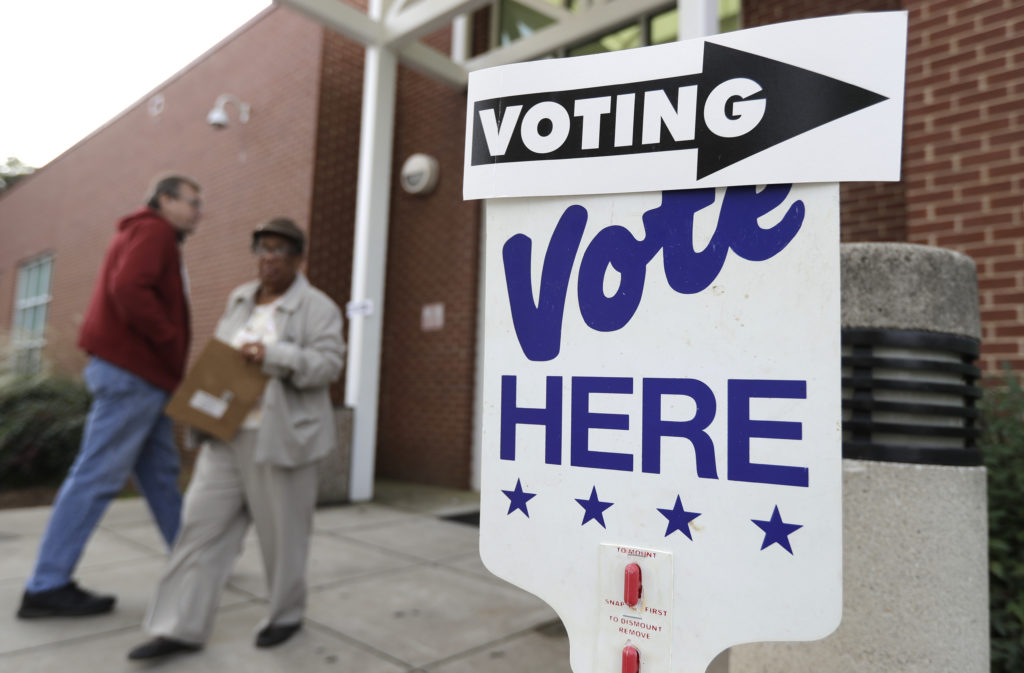
Governor Kay Ivey on Tuesday scheduled a special election to fill the Alabama House District 33 seat left vacant by former Rep. Ron Johnson who passed away on July 14. Ivey set the special primary election for Tuesday, October 6, 2020; the special primary runoff, if necessary, for Tuesday, November 3, 2020; and the special general election Tuesday, January 19, 2020. Johnson, who had served in the House since 1978, was the longest-serving member of the Alabama House of Representatives when he died. “Rep. Ron Johnson served the constituents of Clay, Coosa and Talladega Counties well for many years, and I know he will truly be missed by all,” Governor Ivey said. “Especially while we are experiencing such uncertain times, it is important that the people living in House District 33 have a voice for them in the Legislature. For that reason, I am calling a special election to fill this seat.” The deadline for qualifying with major political parties will be Tuesday, August 4, 2020 at 5:00 p.m. The deadline for all independent candidates and/or minor parties is Tuesday, October 6, 2020 at 5:00 p.m. House District 33 represents Clay, Coosa and Talladega Counties.
Kay Ivey appoints Alabama prosecutor to replace indicted judge

An Alabama prosecutor is now one of the state’s newest judges. Gov. Kay Ivey appointed Limestone County prosecutor Russell “Gray” West to replace Doug Patterson as a district judge for Place 1 in the county. West, 31, was sworn in Friday to the post. West began his legal career at the District Attorney’s Office after graduating from the University of Alabama School of Law in 2014. “It’s still a bit surreal,” West told AL.com by phone following the swearing-in ceremony. “It’s slowly but surely sinking in that it’s happening.” West said he’s excited to start hearing cases, which could happen as soon as next week. He acknowledged that part of his role in replacing Patterson could include rebuilding the community’s trust in the court. “I hope and pray I’ll be able to restore it by being myself and continuing to put the community first,” he said. “My intent is always to put the county first and do what I think is right.” Patterson resigned about three weeks ago, just before he was to face a trial at the Alabama Court of the Judiciary. Patterson also faces a criminal trial on felony charges of theft and abuse of power. He’s accused of using the judgeship to steal from juvenile court funds and faces allegations of theft from his time as an attorney. Patterson has pleaded not guilty. West will serve the remainder of Patterson’s term, which runs until 2022. West can then seek election to the position. “I’m really excited about getting to continue serving Limestone County,” he said. Republished with permission of the Associated Press.


